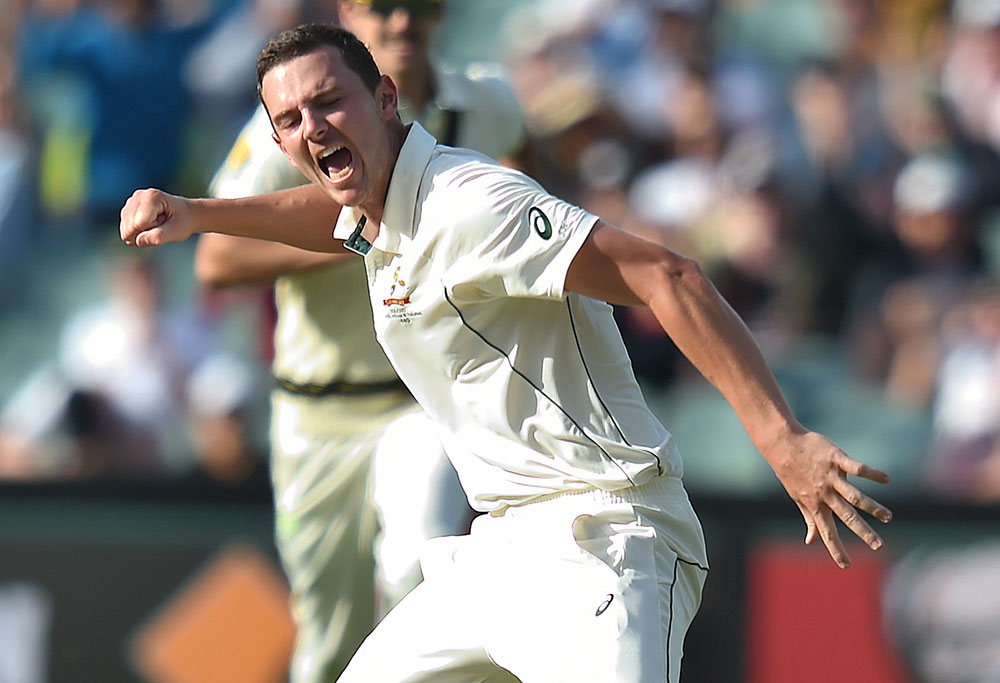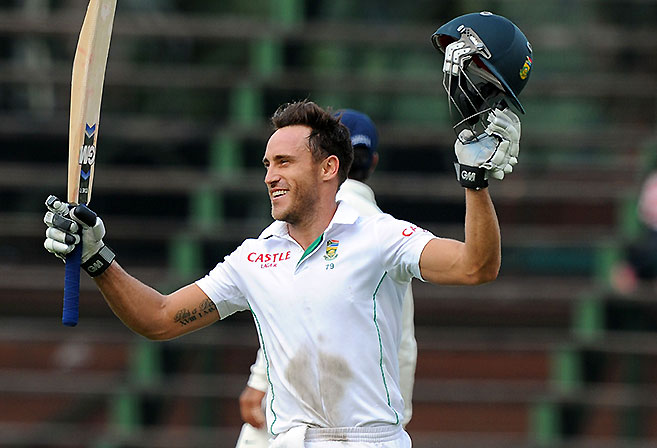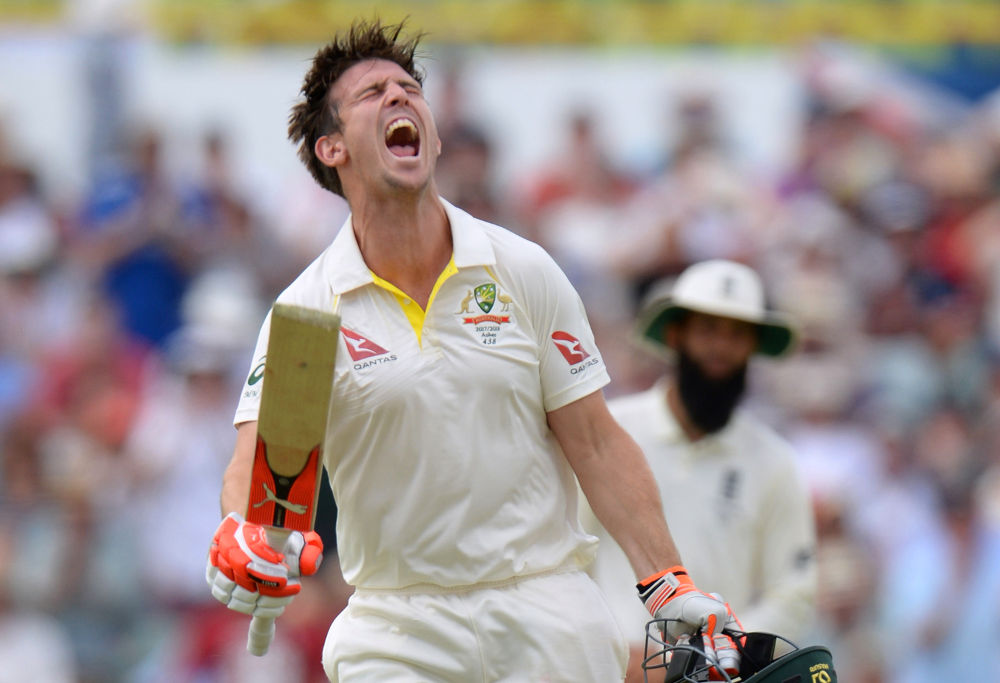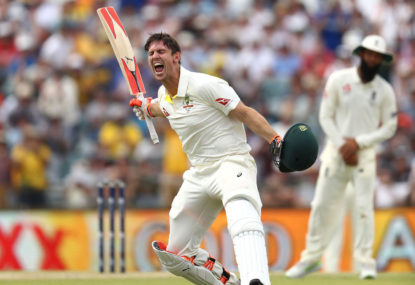Over the next month, the Australian Test team will be looking to continue an amazing modern-day run.
Since the Proteas were readmitted to Test ranks in the early-1990s, Australia has toured South Africa seven times and has never lost a series, with five wins and two draws.
In reverse, South Africa has also had its share of success against Australia in Australia with wins in its past three series.
The home-and-away form line against one another is like no other in modern times, flying in the face of the trend where away teams so often struggle.
Australia will again like its chances this time around.
The highlight this time around will be two high octane fast bowling attacks both duelling for series honours.
Even with veteran Dale Steyn to miss at least the first two Tests with injury, the hosts still boast a dynamic attack.
[latest_videos_strip category=”cricket” name=”Cricket”]
Steyn’s heir apparent, Kagiso Rabada, is the most exciting young quick currently in the game.
At 22 years of age, he already has 120 wickets at 22.0.
His strike rate of 39.7 is bettered by only three men to have bowled more than 2000 balls in Test cricket.
Able to operate regularly in the 140-150km range he will certainly hurry up Australia’s batsmen.
At the other end of the pace scale is Vernon Philander who has thrown off recent injury concerns to re-establish himself as one of the current elite.
He was a late-comer to Test ranks but has built a formidable career – 188 wickets at 21.8 – having debuted against Australia at Cape Town in 2011 where his 5-15 contributed to the tourist’s second innings total of 47.
His nagging accuracy and subtle movement through the air and off the pitch will provide a constant examination of the batsmen’s technique.
The tall, rangy Morne Morkel will complete the host’s pace attack.
A veteran of 83 Tests, he is coming off the best 12 months of his career with 52 wickets at 22.3 in his past dozen matches.
Given that, his announcement yesterday that he will end his international career at the end of this series came as a surprise.
Four years ago he bowled one of the game’s most memorable spells when he duelled with Michael Clarke at Cape Town, breaking the Australian skipper’s shoulder in the process.
South Africa also 21-year-old fast bowler Lungi Ngidi in its squad.
He made his debut in the recent home series against India, claiming nine wickets at 17.2 in the final two Tests.
Australia will counter in the pace stakes with Mitchell Starc, Josh Hazlewood and Pat Cummins.
In a modern day rarity, the trio played the entire five Ashes Tests earlier this summer with each claiming over 20 wickets.
It was a seminal series for Cummins, whose career was stalled for so long with injury after his debut as a teenager at Johannesburg in late-2011, where his second innings 6-79 saw him accorded the man-of-the-match.
The triumvirate showed they are primed for the first Test at Durban on Thursday with solid performances in the solitary warm-up fixture against South Africa A at Benoni – Starc 5-83, Hazlewood 4-68 and Cummins 4-74.

(AAP Image/Dave Hunt)
Waiting in the wings is the uncapped duo of Chadd Sayers and Jhye Richardson.
The spin bowling head-to-head looms as a fascinating one with Nathan Lyon looking to counter Keshav Maharaj.
Lyon’s recent form has been stellar with 62 wickets at 22.7 across his past 11 Tests.
He enters the series requiring ten wickets to become the sixth Australian bowler to claim 300 Test scalps.
Maharaj has made a seamless transition into Test ranks since debuting at Perth in November 2016.
His left-arm orthodox spinners have snared 57 wickets at 26.8.
He has shown he is capable of bowling long, tight spells which will enable skipper Faf du Plessis to rotate his pace attack at the other end.
The South African batting will be built around Dean Elgar, Hashim Amla and AB de Villiers.
Elgar’s performance throughout 2017 had him in most expert’s international team of the year with five centuries in 12 Tests and an average of 53.8.
Dogged by nature, he will look to grind down the Australian attack.
He will open with the more attacking Aiden Markram, whose six Tests to date have produced 520 runs at 52.0.
Amla is not the force he once was with his last 20 Tests producing an average of 39.3 but his resolve and patience can still make him a threat.
Du Plessis, who was public enemy number one on his last tour of Australia, grabbed headlines on debut at the Adelaide Oval in 2012 with a second innings match saving, 466-minute 110 not out.
In eight Tests against Australia he averages 59.4 and has the capability a significant thorn in the tourists’ side.

AFP PHOTO / STR
One of the big question marks heading into the series is what de Villiers can produce.
He spent more than a year out of Test ranks due to injury prior to his return against Zimbabwe on Boxing Day.
Since then, he has played seven innings for 264 runs at 37.7.
He is capable of scoring to all parts of the ground which makes him a constant threat.
If Australia can contain his naturally free-flowing game it will go a long way to securing a series win.
Wicket-keeper Quinton de Kock, like Adam Gilchrist before him, can be destructive at number seven, but he has been in a form trough for quite some time with his last four series producing a meagre average of 18.2.
The Proteas need him to find form in a hurry otherwise they may be forced to look at the uncapped Heinrich Klaasen.
Like South Africa, Australia’s batsmen also face a mountainous task.
One man who will enter the series with confidence is David Warner.
While he has struggled in the main overseas, South Africa has been an Elysian Field for the nuggety left-hander.
In his only series in the republic, in early-2014, he scored 543 runs at 90.5, highlighted by twin centuries in the final Test at Cape Town.
The normally hard and pacy pitches perfectly suit his attacking approach.
His partner, Cam Bancroft, enters the series under the blowtorch.
The eight innings in his debut series against England produced just 179 runs with 82 of them coming in the second innings at Brisbane.
The selectors have maintained their faith in him and he needs to repay it.
He has held his place ahead of Joe Burns and Matt Renshaw, who has posted back-to-back Sheffield Shield centuries since the squad was selected.
Usman Khawaja played one Test on the 2011 tour of South Africa for 77 runs.
Away from home his 11 Tests have produced an average of 27.2 against a home record of 59.4.
This is a series where he needs to prove himself on foreign soil after some fraught experiences on the sub-continent.
Captain Steve Smith is now seen by many as the next best batsman to Bradman given his incredible performances in recent years.
If he continues his rich vein of form South Africa’s fieldsmen will be chasing leather.
Australia, however, must become less reliant on him and have the other specialist batsmen share the load across the series.
The Marsh brothers, at five and six will be looking to build on an outstanding Ashes series where Shaun averaged 74.2 and Mitch 106.7.

(Photo by Philip Brown/Getty Images)
Both will be pivotal if the Proteas can make early inroads with the new ball.
As will Tim Paine at number seven.
The most left-field selection at the start of the summer, he did not put a foot wrong against England, averaging 48.0 with the bat and looking assured and confident with the gloves.
With both teams boasting high quality pace attacks it will be interesting to see what sort of pitches are rolled out for this series.
In recent times, South Africa has had no qualms in preparing extremely pace friendly pitches in the belief that their high calibre quicks would limit opponents to scores their batsmen could chase.
That backfired spectacularly for them in the last Test of the India series at The Wanderers.
That, and the fact that Australia’s fast bowlers are a step up on India’s, may see less spiteful pitches for this series.
It will be an intense and hard fought series, as each of them have been between these two nations.
For mine, I lean narrowly to South Africa winning its first post-Apartheid home series against Australia but I do so with little confidence.
Regardless of the final result it should be series to savour.
































































































